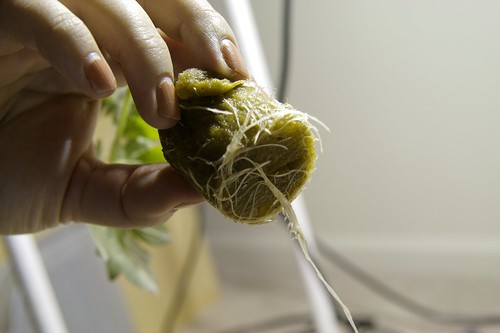The original hydroponic units, long cement planting troughs and raised metal containers, were filled with composted sugar waste and hydroponicos became organopónicos.
Photo: organoponico.com
Organopónicos are a system of urban organic gardens in Cuba. They often consist of low-level concrete walls filled with organic matter and soil, with lines of drip irrigation laid on the surface of the growing media. Organopónicos provide access to job opportunities, a fresh food supply to the community, neighborhood improvement and beautification of urban areas.
The rapid expansion of urban agriculture in the early 1990s included the colonisation of vacant land both by community and commercial groups. The basic principle of raised bed gardening was applied to the construction of new 'organopónicos'. The most common materials used were the fossilised coral substrate, and asbestos sheets. In Havana, organopónicos are found in vacant lots, old parking lots, abandoned building sites, spaces between roads.
Organopónicos first arose as a community response to lack of food security after the collapse of the Soviet Union. They are publicly functioning in terms of ownership, access and management, but heavily subsidized and supported by the Cuban government.
Photo: AndyGoodwin
Organopónico buried its hydroponic roots and came to mean an urban and organic market garden. Some are run by Minagri employees, some are co-operatives. Most organopónicos are state-owned, but very small ones may be private. Yvonne Otero Cruz has packed the patio of her substantial colonial-style house in Santa Clara with exotic plants for interior decoration. She also creates a marvellous variety of decorations from dried flowers in a cramped attic. The very existence of any market for her products underlines the fact that happier days have returned to the town.
An organopónico is very efficient in getting food to the people who need it by avoiding transportation from the countryside farms. These producers sell their products in the same place where they produce them, avoiding taxes so in general their prices are lower, and in fact allowing producers to make a good income growing.
Sources: wikipedia.org, cubasupport.com
Organopónicos - Urban Agriculture
6:45 AM
ThanateTan







